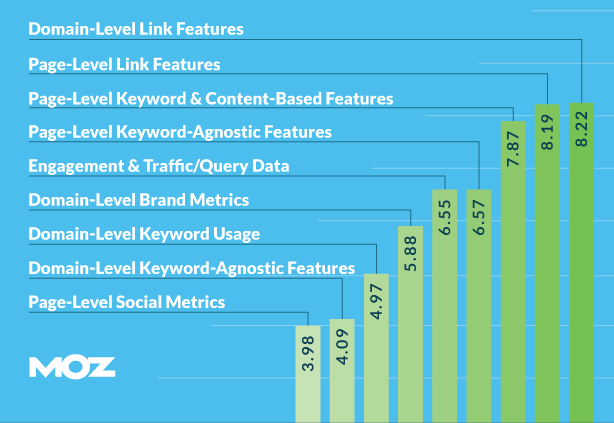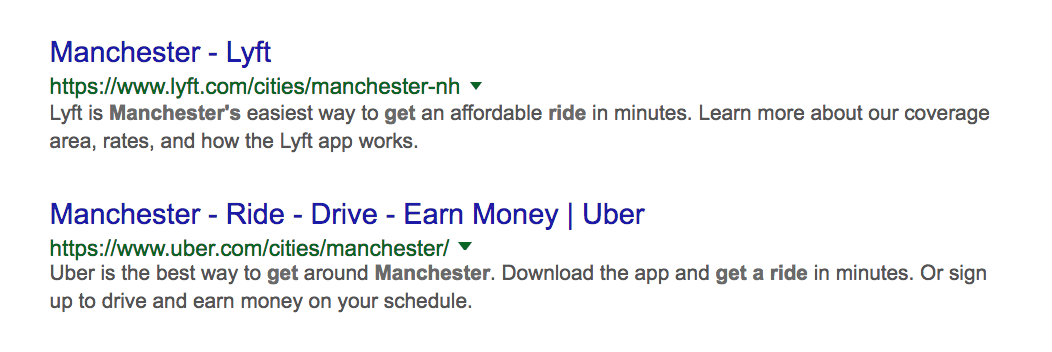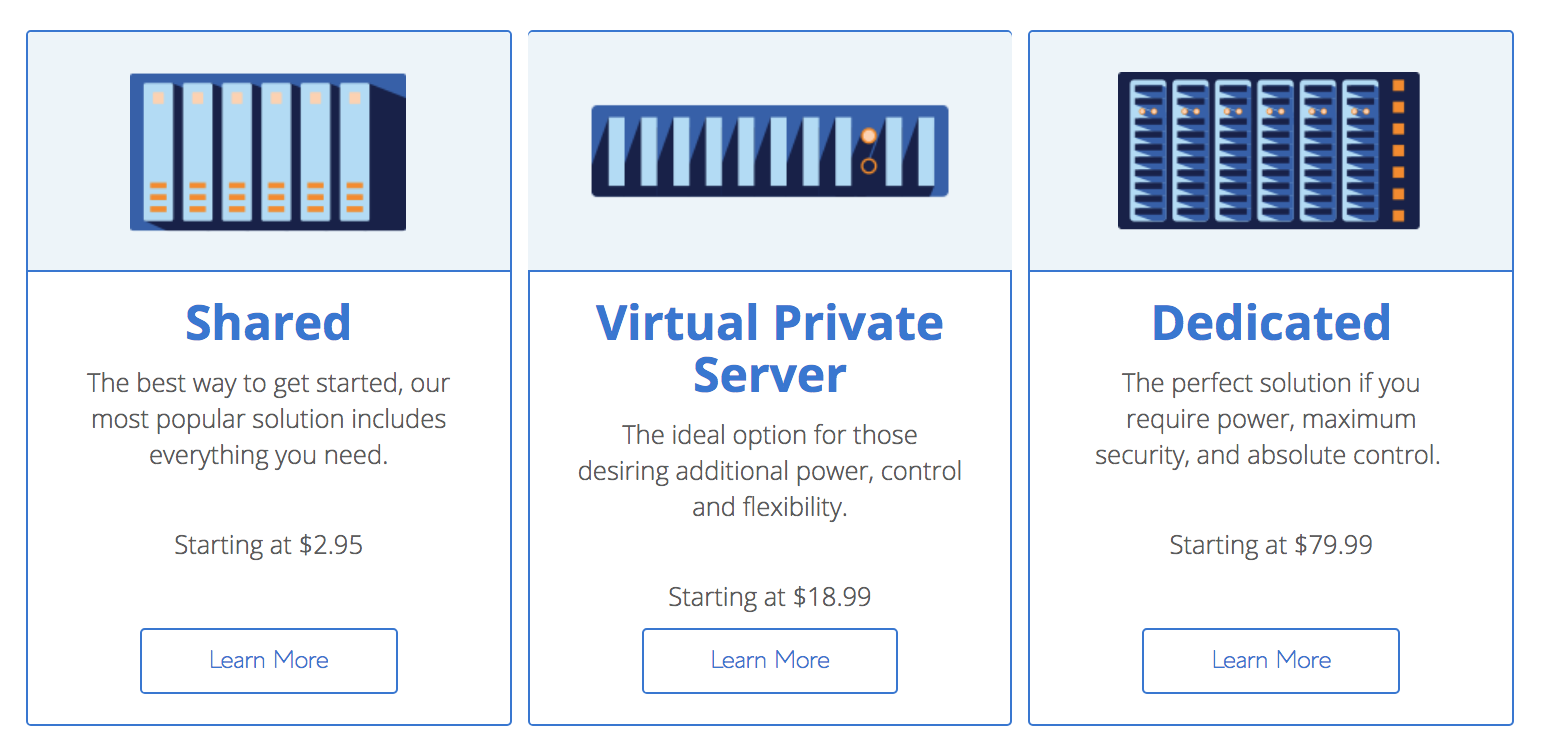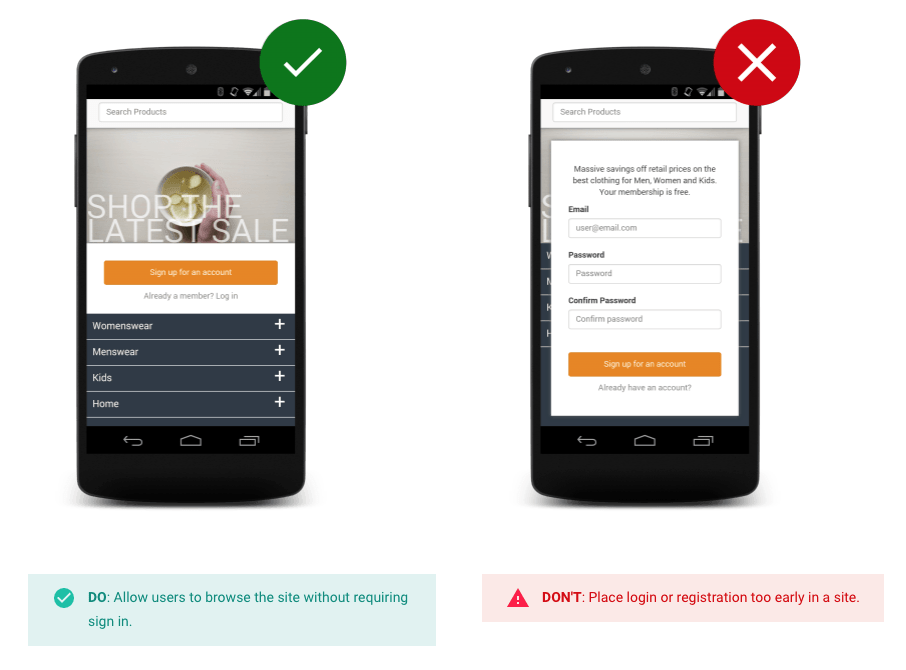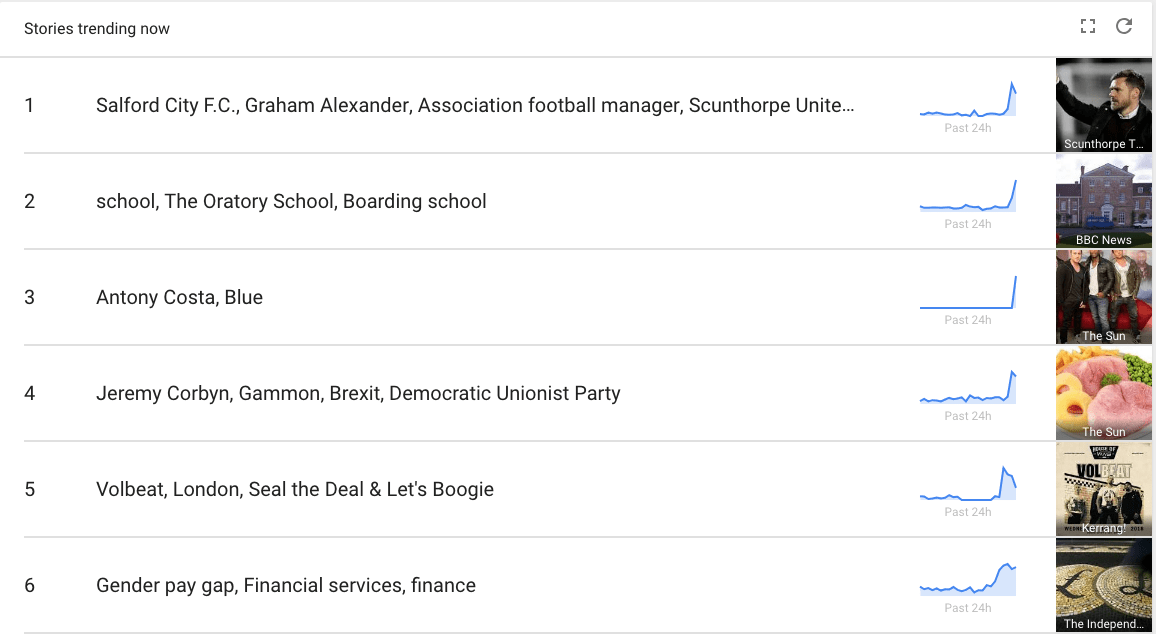
Search engine optimisation is tricky for any business, but you’ve got a real challenge on your hands as a startup. You need to make an impact fast, get things moving and start building traction before those limited funds run out. Which is probably why a lot of startups take shortcuts with SEO, hoping to cut a few corners and speed their way to search ranking glory.
Sadly, Google has a fairly brutal history of proving it doesn’t tolerate corner cutting.
Just a few of Google’s recent penalties for low-quality sites
In this guide, I’m going to explain how startups can approach SEO to get fast results that last – and then how to supercharge your search strategy with automation.
Here’s an overview of what we’ll be looking at in this guide:
- What makes startup SEO different from regular SEO?
- What do search engines want?
- Building a website for SEO
- What makes great SEO content?
- Automating your startup SEO strategy
Note: If you’re looking for SEO tips specific to COVID-19, check out our post 13 SEO Strategies for SMBs During COVID-19.
What makes startup SEO different from regular SEO?
Absolutely nothing (other than the scale of the challenge). Google doesn’t care whether you’re a startup, a major financial institution or the smallest online retailer – all it cares about is connecting people with the most relevant content for each search query. The SEO requirements for a startup are exactly the same as the world’s biggest brands and search engines want to see the same things from you as any other kind of business.
What does make a difference for most startups is the scale of the challenge. You don’t have the resources of a large business, but your aim is to grow as quickly as possible and compete with the biggest names in your industry.
For many startups, this means doing enterprise SEO on a small business budget, which comes with a few compromises. The problem is, Google doesn’t accept compromises when it comes to search optimisation and you need to get the fundamentals spot on. The good news is, the sooner you get these right, the faster you’ll be able to build a self-sustaining SEO strategy that doesn’t come back to bite you in the budget later.
What do search engines want?
As mentioned, Google doesn’t care what kind of business you are or what your marketing objectives might be. Search engines have their own agenda and when it comes to SEO it’s all about awarding high-ranking positions to pages that provide the following:
- Accessibility: Before search engines can rank your pages, they need to be able to access them.
- Quality content: This means relevant, unique and useful content that provides the answers users are looking for when they type in a query.
- Great user experience (UX): Your website is an extension of the search experience and Google wants to see great UX from your pages.
- Engagement: Quality content and great UX should keep users on your site and engaging with your content, which is precisely what search engines want to see.
- Optimisation: All the optimisation essentials that make pages easy for search engines and users to understand.
Essentially, you need to create great content and experiences while covering the technical optimisation essentials – that’s what search engines and users want to see from you.
How do search engines measure these things?
The problems with phrases like “quality content” and “great UX” is they’re entirely ambiguous. So how do search engines actually measure these vague qualities when they only have rigid data to work with?
According to Andrey Lipattsev, a Search Quality Senior Strategist at Google, the top three Google ranking factors are content, links, and RankBrain.
Keywords
One of the most significant changes to Google’s algorithm over the years has been how it uses keywords to match relevant content to queries. The days of simply matching search terms to the keywords on your page are behind us, and Google’s machine learning algorithms are able to match the topical relevance of your content to the contextual meaning behind user searches.
Links
While Google has hundreds of ranking factors working together in its core algorithm, links are still one of the top three factors. Content that earns a lot of links from trusted sources is likely to be engaging, high-quality stuff and it’s the quality of the links you earn, not the quantity that really matters.
UX signals
Google uses a combination of UX signals to get an idea of how good the experience is on your pages. This includes loading times, mobile-friendliness, secure encryption, content placement and the navigation of your site.
Engagement signals
If you want to know how engaging your content is, you might look at bounce rates, average time on page and the number of pages visited per session to get an idea – and Google can do precisely the same. If a user clicks through to your site, quickly returns to the results page and clicks on another listing (called “pogo-sticking”), it suggests you haven’t provided what this person is looking for.
Location
Lyft and Uber competing in the SERPs for the query “get a ride in manchester”
Whether location comes into your SEO strategy really depends on the nature of your startup. Airbnb certainly wants to be showing up in local results, and the likes of Uber, Skyscanner and Deliveroo all rely on location data to connect with users new and old. This is a crucial factor in terms of relevance for suitable searches and you may need to consider this if location plays a key role in your startup.
Building an SEO-friendly website for your startup
While it might be tempting to throw together a website and sign up to the cheapest hosting provider you can find, you’ll be limiting your growth prospects. As we’ve already looked at in this guide, user experience and engagement factors are a crucial part of your search marketing strategy, and this means you need a website built for SEO.
There are five key areas to think about:
#1: Hosting
Remember, your goal as a startup is to grow as quickly and sustainably as possible, and choosing the wrong hosting package is the worst way to get things moving. Page loading times – which becomes a direct ranking factor in July 2018 – is largely determined by the quality of your hosting services.
An overview of Bluehost’s hosting packages – cheaper isn’t always better.
The package you sign up for will also place a limit on the number of visitors that can access your site and how much data can be transferred from your site to them. Which means, if your startup outgrows your hosting package, people aren’t going to be able to access your website.
You also need to think about the uptime record of your service provider, what security system they have in place and what additional performance features are available (e.g. web cache, CDN, etc.)
#2: Code
The other key factor in website performance is code, and this impacts everything from the way search engines access your website to how quickly your pages load and the mobile experience you’re able to provide.
Clean, fast code is important and you need to be aware of this if you’re using WordPress themes or other CMS platforms that typically come with a lot of bloated code. Despite its chunky build, one of the key benefits of using WordPress is its structure of templates that allow you to create new pages at the push of a button and create content in a visual interface, rather than code everything yourself.
If you’re building your website from scratch, create your own templates for new pages and important elements so you don’t have to keep typing out the same code. Also make sure you’re familiar with dynamic web pages so you can edit elements like your website’s header in one place instead of having to make the same changes manually across every page.
#3: Design
While search engines can’t see the visual design of your website, they can interpret the navigational structure and basic layout of your pages, as long as you mark them up correctly. You also have the UX signals we looked at earlier to think about and these directly impact your engagement signals, too.
Source: Google Developers offers a number of mobile optimisation tips
As things stand, user experience is only a direct ranking factor for mobile pages but this doesn’t mean UX and engagement signals aren’t going to hurt your desktop ranking as well. If your bounce rates are sky high and your loading times are sluggish, you’re not giving Google much reason to recommend your pages to users on any device.
#4: Content
Content is why people turn to search engines in the first place, and being able to produce what they’re looking for will decide how successful your SEO strategy is. I’ll go into this in more detail in the next section of this guide.
#5: On-page optimisation
On-page optimisation gets quite a lot of attention so we probably don’t need to go into too much detail here. It’s important you get this right for every page you publish, but there’s no shortage of guides on this subject and, once you’ve got a hang of it, it’ll be the most straightforward part of your SEO strategy.
Here’s what you need to cover:
- Page URL: Make it descriptive, readable and include your main keyword where appropriate. In most cases, this will be the same as your page title with any stop words removed and formatted like this: www.yoursite.com/your-page-URL.
- Page titles: The title for search engines that appears as the blue link text in search results – make it descriptive, readable and include your main keyword where appropriate.
A page title as it appears in Google Search, highlighted in red.
- Headings: Make sure your page content is broken up into logical chunks and separated by the suitable headings tags (h1, h2, h3, etc.)
- Content: Make it unique, useful and highly specific to a single subject.
- Keywords: Include keywords in your page title and headings where appropriate while using a variety of synonyms, variants and closely related terms in the main body of your text to avoid keyword stuffing.
- Use images: Break up chunks of text with relevant images and optimise them for search (compress files sizes, include subject and keyword in alt-description, etc.)
- Internal links: Include links in the main body of the text to any relevant pages on your website.
- Mobile optimisation: Pages that are optimised effectively for mobile perform better in search.
- Structured data: This gives search engines structured information about your content at the code level by marking sections of your page as articles, reviews, addresses, etc.
Build a website for SEO from day one and you’ll save yourself a lot of hassle and money further down the line. Get these five essentials right now and you’ll have a platform for life that only needs minor tweaks as your startup progresses.
What makes great SEO content for startups?
A snapshot of trending news stories from Google Trends
Creating quality content is one of the biggest challenges modern businesses face, especially when resources are limited. First, you need to create content that’s good enough and then you need to find a way to produce a high enough volume of it. The goal is to consistently produce content that is all of the following:
- Valuable: Your content needs to provide something useful that your audience won’t find anywhere else.
- Linkworthy: You know you’re producing quality SEO content when it starts earning links from trusted sources – and so does Google.
- Sharable: When people discover great content they naturally want to share it with their friends and you need to make this as easy for them as possible.
- Varied: Don’t just rely on blog posts; create videos, images and multimedia content to maximise reach and engagement.
- Visual: Even your blog posts should be as visually appealing as possible to keep people scrolling, reading and more likely to share.
- Optimised: As always, every piece of content needs to be optimised for search to maximise your visibility.
- Actionable: Links, shares and high search rankings are no good to you unless your content turns readers into customers.
The good news is startups tend to be innovative by nature so there’s a good chance you’ve already got something unique to say and a good understanding of your audience. Most brands struggle with this but you have something of an advantage here, so make the most of it and create highly compelling content.
Airbnb promised to change the way people travel – and it delivered.
Look at the biggest startup success stories and analyse their content. Airbnb positions itself as the place to find unique travel experiences with locals, Uber is the cheap, on-demand taxi alternative and Skillshare carved its niche as a free learning exchange platform. They all address their audience concerns in a way nobody else is doing and their content has a friendly, approachable tone – even when we’re talking about software startups like IFTTT or Slack.
Automate your startup SEO strategy
Apollo Insights is an automation platform that handles hundreds of technical items every few days.
Fast, sustainable growth is everything to a startup, but search optimisation is a slow, gradual process where shortcuts cause more problems than they solve. Luckily, automation is progressing at a rapid rate and we’re now able to cut out a lot of the repetitive SEO workload that used to swamp entire teams of SEOs and content marketers.
You’re not going to automate your way to high rankings overnight but you can save huge amounts of time and resources by automating repetitive tasks so you and your team can focus all of your efforts on other things.
To make this a little clearer, let’s look at some of the SEO tasks you should be automating as a startup.
- SEO reports and audits: Run automated SEO reports and audits to get regular feedback on your technical SEO performance.
- Keywords and backlinks: You don’t need to manually repeat keyword research or monitor your backlink profile.
- Notifications: Set up notifications when issues like broken links, slow loading times or high bounce rates are detected so you can fix things before they hurt your search ranking.
- Lead generation: Use multi-step forms to generate segmented email lists and automate your responses.
- Social sharing: There are plenty of social automation tools to help you make your content go further.
- Performance reports: By automating performance reports on your content you can find out what your audiences are responding to most and where you need to make improvements.
- Optimisation: You can automate a range of core SEO tasks such as image resizing, URL formatting, page creation, CTA embeds and countless other things.
If you find yourself doing the same thing over and again (e.g. writing alt descriptions), try and find a way to automate it. You’re not going to be able to automate everything but you can make the most of your time and cut out a whole bunch of human error while you’re at it.
The more you automate, the more time you can spend focusing on the tasks that need human attention – like content creation and strategic decision-making. This is absolutely crucial for startups, and the only “hack” that’ll have you doing enterprise SEO on a small business budget.
About the author
Lee Wilson is head of enterprise SEO at Vertical Leap and has been leading digital marketing teams since the early 2000’s. He has headed up the SEO department for a top 10 leading search and digital agency (Vertical Leap) from 2010 to present. In 2016, he had his first solely authored industry book published (Tactical SEO – the theory and practice of search marketing).


